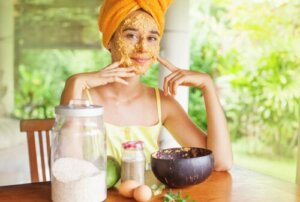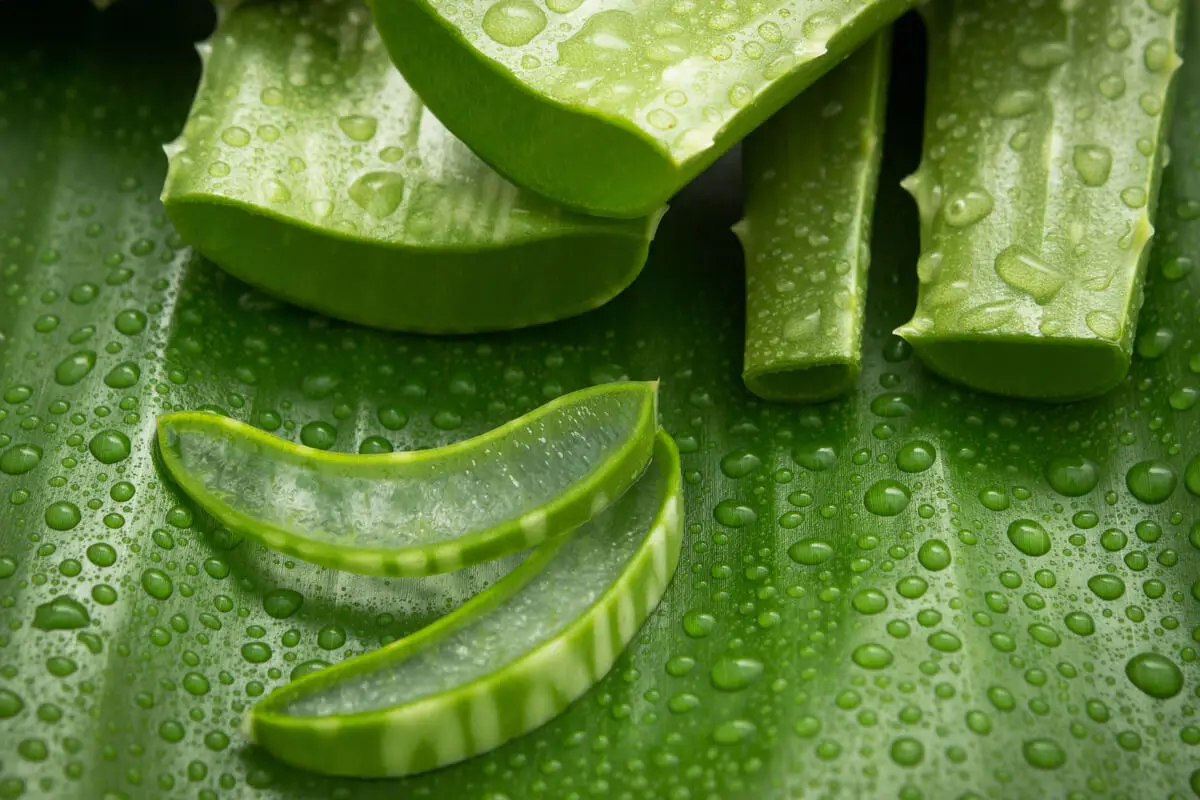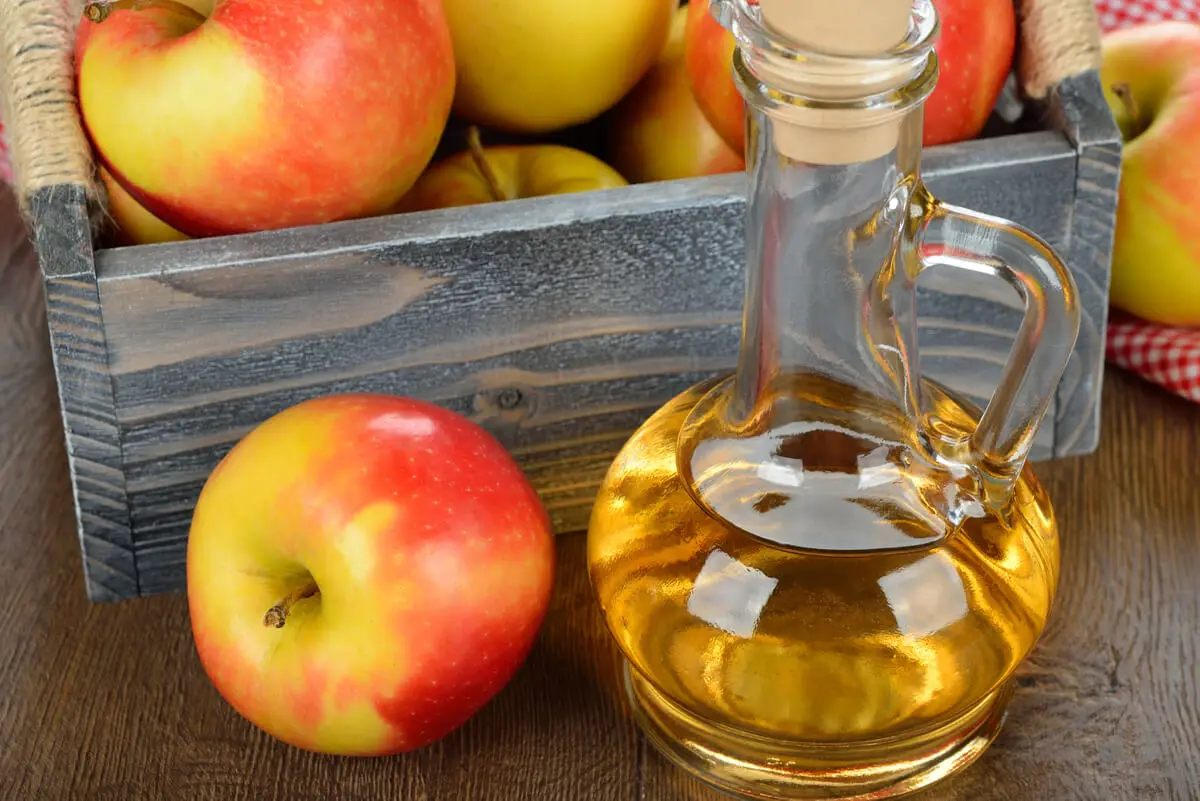16 Home Remedies for Acne


Reviewed and approved by the nurse Leidy Mora Molina
There’s a wide variety of home remedies to fight acne that combine various ingredients that we may already have at home. Aloe vera, honey, mint, baking soda, low-fat diets, and even exercise are among the various alternatives.
Also, home remedies to combat acne have the advantage of being cheaper and easier to apply compared to traditional clinical treatments. And while the latter are often effective, they’re also more expensive.
Remember that you should always seek medical consultation. Severe cases of acne can only be treated with certain pharmacological combinations. In any case, the specialist may authorize you to use some of these supplements.
Learn about home remedies to combat acne
It’s estimated that acne affects up to 85% of young people between 12 and 25 years of age. It’s therefore considered the most common dermatological condition worldwide. It’s not always easy to treat, and the use of home remedies to combat acne can support the process. We’ll leave you with a wide selection of the most popular ones.
1. Aloe vera
The aloe vera plant is widely used in the cosmetic industry. The gel obtained from the pulp of its leaves is usually added to creams and lotions for the skin, as well as soaps, shampoos, and other personal care products.
It is attributed to great benefits in the treatment of various skin conditions. It’s also used in combination with other substances, such as tretinoin, proving to be effective for acne vulgaris, mild or moderate, according to studies.
To apply it, an aloe vera leaf is taken, the bark of the leaf is scraped off, and the crystal (gel) is used to place it directly on the affected area. It’s very important that your skin is clean before you apply it.

2. Honey
Among the various benefits of honey, it’s worth mentioning that it has antiseptic and antibacterial properties, so researchers consider it suitable for treating skin problems. Plus, since bacteria are the main factor that aggravates rashes and pimples, it’s not surprising that honey is among the natural remedies to fight acne.
You can use it in several ways:
- Make a preparation with two tablespoons of honey and a teaspoon of lemon juice and spread it on the affected area, leaving it for 15 minutes. Then, wash with warm water.
- You can also apply honey alone, directly on the pimples. In this case, leave it on for 30 minutes and then wash your face.
3. Lemon
Now that we mention lemons, this is also one of the home remedies to fight acne. According to research, lemon oil can be used as a natural agent for skin problems due to its antioxidant and antimicrobial activity.
You should cut a lemon in half. Then you rub it over the affected area or squeeze it, dropping a few drops.
You can also put the juice on a cotton pad, which you then wipe over the skin. Leave it on for 10 minutes and wash it off with lukewarm water. It is important to avoid getting drops of juice in the eyes and exposure to the sun (so as not to stain the skin).
4. Baking soda
The properties and uses of this substance are diverse. There’s even talk of the benefits of baking soda in exercise.
It’s believed to have antiseptic and anti-inflammatory properties. In particular, it can help fight pimples and blackheads if you use it as a poultice. Although its effectiveness has not been proven for this specific context, studies have supported its use for disorders such as psoriasis.
It’s recommended to take a large spoonful (10 grams) of baking soda and mix it with water in sufficient quantity to obtain a homogeneous and pasty mixture. This should be applied to the affected parts with acne and leave it for 10 minutes. Then remove it and wash your skin well with neutral soap and cold water.
Like this article? You may also like to read: Treat Acne by Adding 5 Skin Cleansing Shakes to Your Diet
5. Cinnamon
Studies have found that cinnamon may be able to inhibit the growth of strains associated with the development of acne: Propionibacterium acnes, Staphylococcus epidermidis, and Staphylococcus aureus.
Cinnamon can be used alone or combined with honey in a ratio of two tablespoons of honey to one teaspoon of cinnamon. Together they form a paste, which is applied to the face for 10 to 15 minutes.
6. Green tea
Green tea is an infusion rich in polyphenols that you can also use as a home remedy to fight acne. Its main antioxidant, epigallocatechin-3-gallate (EGCG), is believed to be an important factor in reducing sebum and inhibiting Propionibacterium acnes.
There are creams and lotions that contain green tea, but it’s also easy to prepare at home. Just steep the tea in boiled water, like an ordinary infusion. It’s applied to the skin with absorbent cotton or a spray.
7. Tea tree oil for acne treatment
This is one of the so-called essential oils extracted from Melaleuca alternifolia, a plant species from Australia. It has antibacterial and anti-inflammatory properties, which is why tea tree oil can be used in the treatment of acne.
It’s applied directly, although it’s necessary to dilute it: one part oil to nine parts water. In addition, there’s also the option of applying it on a cotton pad and placing it on the affected area.
8. Peppermint
You can fight acne using a mint mask. Take advantage of the natural anti-inflammatory and analgesic benefits of this plant. Evidence supports its benefits over placebo or no treatment.
The process is very simple. You just need 250 milliliters of water and 15 grams of mint leaves. Put the leaves to macerate in the warm water until they soften. Crush them in a mortar and pestle to form a paste. Apply directly to the affected area and leave for 15 minutes. Then, rinse your skin well.
We think you may also enjoy reading this article: How to Get Rid of Acne Scars with 15 Natural Remedies
9. Apple cider vinegar for acne
Apple cider vinegar contains organic acids, which help fight various types of bacteria, including those related to acne. However, it should be used with caution and diluted, as it can be irritating to the skin. You just need to leave it on your skin for about 15 seconds and wash it off with plenty of water.

Apple cider vinegar is irritating to the skin. It should be used with caution on the skin and not left on for more than 15 seconds.
10. Witch hazel
Hamamelis virginiana (also called witch hazel) is a typical North American species. It’s believed to contain tannins with antibacterial and anti-inflammatory properties.
A topical is processed from its bark and leaves and used as a natural product or as a base in cosmetics. It’s attributed with benefits for treating skin conditions ranging from dandruff to eczema. A paper published in Antioxidants in 2022 endorsed its properties in favor of acne.
As a home treatment to combat acne, it’s recommended to take a tablespoon of witch hazel mixed with a cup of water. After boiling, it is cooked over low heat for 10 minutes. Let it seep and strain it. The application of the mixture can be done with a cotton pad 1 or 2 times a day.
11. Homemade exfoliation
Exfoliation can help with the treatment of acne, as it removes dead cells and other impurities that clog pores. There’s a wide variety of exfoliation procedures and products available today.
However, you can also do it at home, using salt or sugar mixed in equal parts with coconut oil. With this, you gently rub the skin. Help yourself with a soft glove and wash well.
12. Zinc supplements
Several studies have been conducted on the role of this mineral. In this regard, it’s believed that people with acne tend to show relatively low levels of the substance, so taking zinc supplements (10 milligrams) could help reduce the problem.
13. Omega 3
In addition to the benefits related to cholesterol levels and overall cardiovascular health, omega-3 fatty acids impact chronic inflammation factors, which would help reduce acne. They can be obtained by consuming fish (salmon, sardines, anchovies), as well as nuts (walnuts), and chia or flax seeds.
14. Diet
The relationship between diet and acne is still under debate. A low glycemic load diet is recommended, avoiding processed foods, refined flour, and sugar.
15. Exercise
Another topic on which more research is considered to be needed is the influence of exercise on acne. However, there is no doubt that physical activity has an impact on blood circulation and hormone regulation, as well as on fat metabolism.
16. Stress management
Although there’s no complete consensus among researchers, some studies suggest that stress, while not the cause, can make acne worse. Hormones released during stressful situations would increase sebum production and the inflammatory response.
Therefore, home remedies for acne should include anything we can do to reduce stress. This includes regular rest, participating in leisure activities, exercising, meditation, and relaxation techniques.
Be careful with home remedies for acne
When mild, home treatments for acne usually work. However, in more severe cases, they shouldn’t be considered as the first or only option but only as a complement.
On the other hand, the fact that they’re home remedies doesn’t mean that they’re totally harmless, without risks or side effects. Thus, if you notice any allergic reaction, you should discontinue their use immediately.
All cited sources were thoroughly reviewed by our team to ensure their quality, reliability, currency, and validity. The bibliography of this article was considered reliable and of academic or scientific accuracy.
- Acuña de la Rosa J, Altamar Castro G, Oñoro Vargas P. Acné y estrés: Una problemática común entre los estudiantes de medicina. Cúcuta, Colombia: Universidad Simón Bolívar, 2020.
- Baldwin H. Oral antibiotic Treatment Options for acne vulgaris. J Clin Aesthet Dermatol. 2020; 13(9): 26-32.
- Dréno B, Dagnelie M, Khammari A, Corvec S. The skin microbiome: a new actor in inflammatory acne. Am J Clin Dermatol. 2020; 21 (suppl. 1): 18-24.
- Jung G, Tse J, Guiha I, Rao J. Prospective, randomized, open-labe trial comparing the safety, efficacy, and tolerability of an acne treatment regimen with and whithout a probiotic supplement and minocycline in subjects with mild to moderate acne. J Cutan Med Surg. 2013; 17(2): 114-122.
- López-Ybarra R. Nuevos tratamientos en acné. El Farmacéutico. 2021; 605: 27-34.
- Lynn DD, Umari T, Dunnick CA, Dellavalle RP. The epidemiology of acne vulgaris in late adolescence. Adolesc Health Med Ther. 2016 Jan 19;7:13-25.
- Kurokawa I, Nakase K. Recent advances in understanding and managing acne. F1000 Faculty. 2020; 29(9): doi: 10.12688/f1000research.25588.1.
- Mazzarello V, Piu G, Ferrari M, Piga G. Efficacy of a Topical Formulation of Sodium Bicarbonate in Mild to Moderate Stable Plaque Psoriasis: a Randomized, Blinded, Intrapatient, Controlled Study. Dermatol Ther (Heidelb). 2019 Sep;9(3):497-503.
- McLoone P, Oluwadun A, Warnock M, Fyfe L. Honey: A Therapeutic Agent for Disorders of the Skin. Cent Asian J Glob Health. 2016 Aug 4;5(1):241.
- Nasri H, Bahmani M, Shahinfard N, Moradi Nafchi A, Saberianpour S, Rafieian Kopaei M. Medicinal Plants for the Treatment of Acne Vulgaris: A Review of Recent Evidences. Jundishapur J Microbiol. 2015 Nov 21;8(11):e25580.
- Piazza S, Martinelli G, Vrhovsek U, Masuero D, Fumagalli M, Magnavacca A, Pozzoli C, Canilli L, Terno M, Angarano M, Dell’Agli M, Sangiovanni E. Anti-Inflammatory and Anti-Acne Effects of Hamamelis virginiana Bark in Human Keratinocytes. Antioxidants (Basel). 2022 Jun 5;11(6):1119.
- Vargas Argote RC. Tratamientos para el acné según su patogénesis y diagnóstico. Innovación Estética. 2021; 2(2): 18-42.
This text is provided for informational purposes only and does not replace consultation with a professional. If in doubt, consult your specialist.








